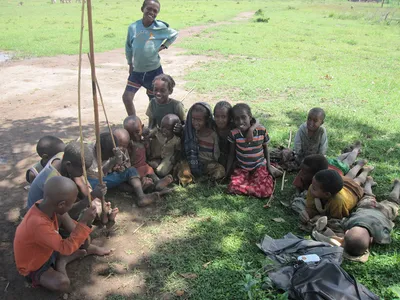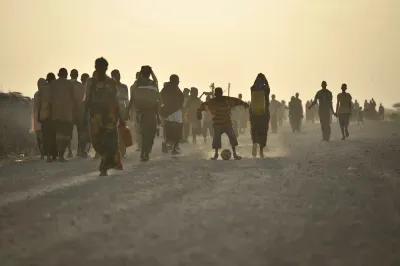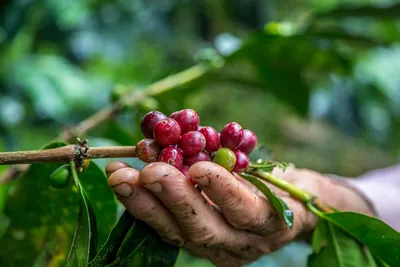From Prison to Power—and Back: One Man’s Ordeal Through Ethiopia’s Courts.
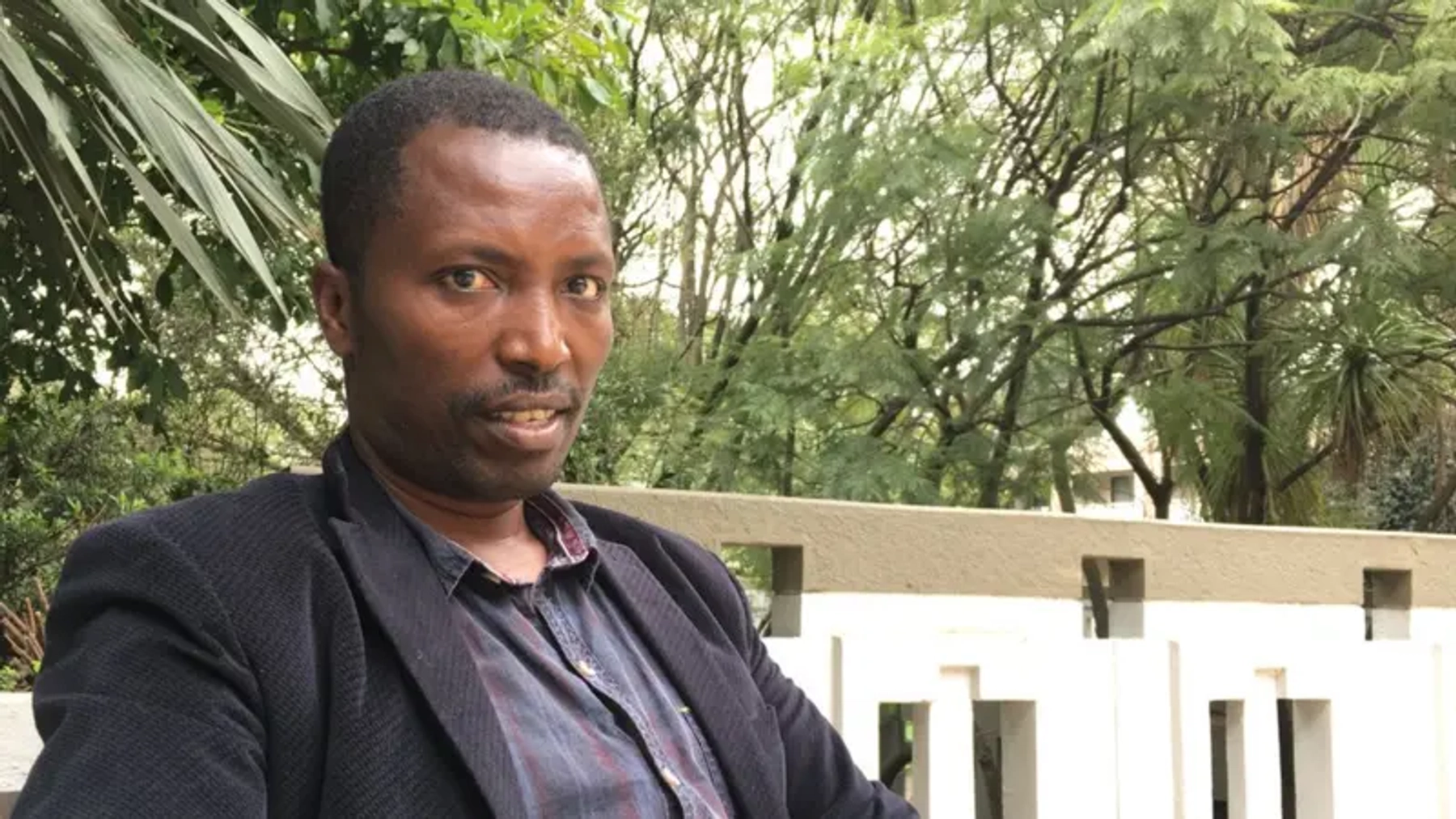
Taye Dendea, a lawyer-turned-politician, has emerged as the most consequential challenger to Abiy Ahmed’s rule. Across seven years of mounting dissent, no critic has advanced a challenge comparably disruptive to the regime. Leveraging his insider standing as a former state minister and a rigorous series of interviews, Taye has pierced the regime’s narrative discipline, eroded confidence among cadres and laid bare its necropolitical turn: the strategic use of law and security to determine who is put at risk of deadly violence. As of 2 June 2025, Taye Dendea is again in prison—for the fifth time. His trajectory—from political prisoner to government minister and back to prison—signifies more than individual persecution; it evidences the judiciary’s repurposing as an instrument of authoritarian management. Under Abiy, legal procedure fails to meet even minimal due-process standards—benchmarks his predecessor observed—as the security apparatus predetermines outcomes and overrides the courts. This article reconstructs Taye’s path to demonstrate how legality has been instrumentalized as a tool of repression.
First Imprisonment.
Taye Dendea showed academic brilliance from an early age. Born in North Shoa (central Ethiopia), he excelled in school and went on to attend Addis Ababa University (AAU) to study law. At AAU, he quickly became a role model for fellow students, earning numerous awards for academic excellence. Beyond his studies, he was an active organizer in Oromo student circles. He helped launch a campus journal and coordinated an Afan Oromo language club to promote Oromo culture and language rights. This kind of cultural and linguistic activism—asserting Oromo identity in a tightly controlled state—was viewed by authorities not as civic engagement, but as subversion and it soon made him a target.
His first arrest occurred in early January 2004, after student protests at Addis Ababa University opposing the relocation of Oromia’s seat to Adama. Detained alongside others, Taye was later that year held on suspicion of terrorism; after more than two years of court appearances, he was acquitted and released in February 2007. This was not an isolated administrative lapse but part of the Ethiopian People’s Revolutionary Democratic Front’s broader repertoire of authoritarian control. In the early 2000s, authorities routinely imputed peaceful Oromo dissent to support the outlawed Oromo Liberation Front (OLF), thereby criminalizing identity-based and civic expression. Taye was one of many swept up in this dragnet.
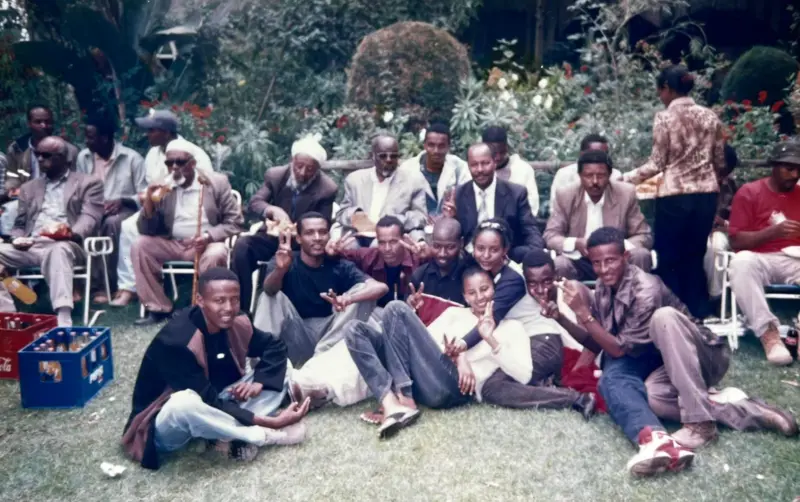
But what distinguishes his first imprisonment is the method of repression. Taye was not tried or sentenced—he was silenced through judicial inaction. There was no hearing, no ruling, no formal adjudication. The law did not speak; it stalled. He was placed in judicial purgatory, where the mere passage of time became the tool of punishment. Ethiopia’s legal machinery was deployed not to resolve questions of guilt or innocence, but to indefinitely delay them. The calendar—not the gavel—became the regime’s instrument of coercion.
During this period, a special judicial bench was established to handle politically sensitive cases, particularly those involving alleged OLF sympathizers. In Taye’s own testimony, this special judicial bench was the 5th bench, presided over by Judge Leul Gebremariam. Operating seamlessly with the security apparatus, this bench orchestrated systemic postponement. Hearings were scheduled and rescheduled; rulings were drafted and shelved. Judges did not act as neutral arbiters of law, but as intermediaries between the courtroom and intelligence agencies. The court existed not to deliver a verdict—but to withhold it.
Taye’s only “crime” was to exercise his right to speak and assemble as an Oromo, acts that in the eyes of the state, warranted indefinite incarceration. He was reportedly held incommunicado at Maekelawi prison, notorious for torturing political prisoners, with no access to legal counsel or family. Article 17 of Ethiopia’s constitution explicitly forbids arrest without charge, yet these protections proved meaningless. As months dragged into years, silence itself became a verdict: his Oromo identity, activism, and defiance rendered him, in the regime’s view, guilty by default.
This form of repression eluded the spectacle of show trials or televised accusations. It relied instead on the slow attrition of hope, as days passed in a cell with no prospect of legal resolution. Yet, when Taye was finally released and acquitted in February 2007, he chose not to disappear into silence. He immediately returned to the university to complete his studies. His resilience would come to define him: each time the system tried to break him, Taye emerged more determined to continue the fight for justice.
Second Imprisonment.
In late July 2009, four days before his thesis defense, he was re-arrested and confined in Maekelawi and other detention centers under harsh conditions. Human rights organizations warned that he and his co-detainees were at risk of torture. Prosecutors later filed charges of terrorism, subversion, and conspiracy against officials, anchored in alleged ties to the outlawed Oromo Liberation Front—a familiar script for criminalizing dissent. Unlike the first episode, proceedings moved forward: the regime staged a trial that culminated in a ten-year sentence.
From the outset, Taye knew that the courtroom proceedings would be a farce. Before ever appearing before a judge, a security officer named Moges Girma told him: “You will be sentenced to ten years.” And he was right. The trial that followed was not designed to establish guilt or innocence—it was a choreographed performance, a tightly scripted exercise in authoritarian legality. Witnesses testified about meetings that never occurred. Prosecutors submitted fabricated dossiers. Judges, ostensibly neutral, merely recited the decisions handed to them. Cross-examinations were permitted but functionally meaningless. Guilt was not determined in court; it had been preordained elsewhere, behind closed doors.
In this phase, the Ethiopian courts did not merely delay justice—they performed it. Legal rituals were retained—the sworn oaths, the transcripts, the docketed hearings—but their substance was hollow. The courtroom became a stage, its actors playing assigned roles in a play authored by the security services. This was what legal theorist Peter Fitzpatrick might call “law as counter-law”: the form of law mobilized to subvert its own spirit. The goal was not to adjudicate, but to create the illusion that adjudication had occurred. In Taye’s case, the illusion held: his appeals were processed and dismissed, his ten-year sentence delivered exactly as foretold.
Taye’s experience exemplified how authoritarian regimes aestheticize state power, not just through brute force, but through legal pageantry. The verdict preceded the trial, and the trial existed only to ratify that verdict. This performative legality disarmed outside observers and numbed internal dissent. People saw a courtroom, a judge, a sentence—and assumed due process had been served. But in reality, they were watching a carefully orchestrated performance whose outcome had been fixed from the start.
By the time his sentence was imposed, Taye had already been detained for months. He would remain imprisoned for nearly seven years—well into the mid-2010s. During this period (2009–2016), Ethiopia’s prisons were filled with thousands of Oromo political prisoners like him.
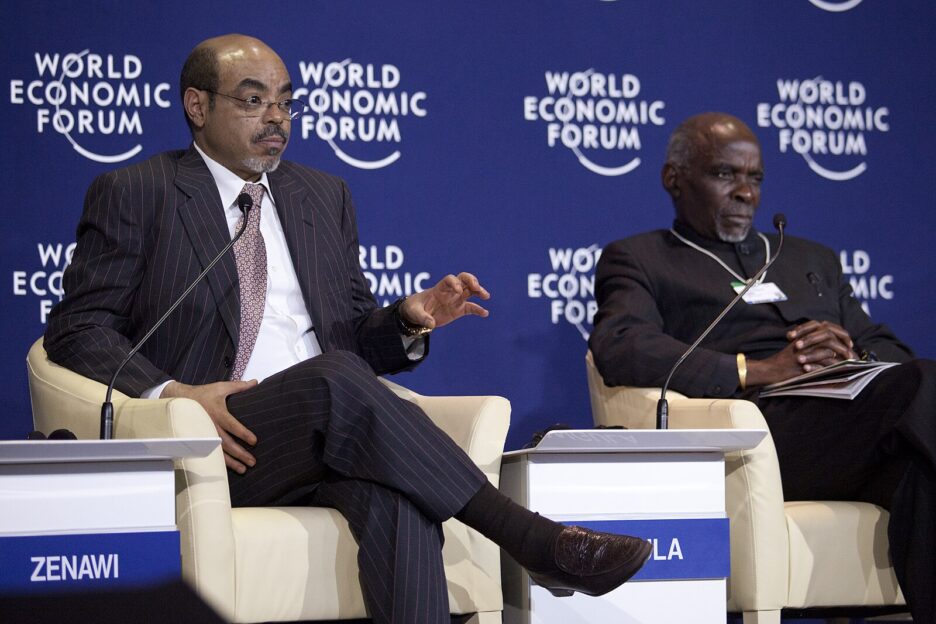
Under the EPRDF regime, simply being an outspoken Oromo was enough to be labeled a terrorist sympathizer. Taye’s prolonged incarceration made him a prisoner of conscience, sentenced not for anything he had done, but for who he was: a vocal Oromo student leader who had dared to express pride in his identity.
The cost was severe: years lost to imprisonment meant it took Taye sixteen years to complete his first law degree. He was released in 2016 as part of a selective pardon driven by domestic and international pressure. After nearly a decade of repression, he walked out of prison in his mid-30s, finally holding the law degree he had long been denied. Sixteen years after first entering university, his education repeatedly interrupted by state persecution, he finally received his law degree and took on new public responsibilities. Far from being broken, he emerged emboldened. He chose to pursue justice by re-entering public service, turning hard-won freedom into civic action.
The Third Imprisonment.
Following his 2016 release, Taye Dendea reentered public life during a period of profound political upheaval in Ethiopia. The country was in the throes of widespread protests in Oromia against decades of marginalization and authoritarian governance. Reformist elements within the Oromo wing of the ruling coalition (the OPDO) were gaining momentum. In this turbulent atmosphere, Taye’s credibility as a trained lawyer and long-imprisoned activist, made him a compelling voice of conscience. By 2017, he had been appointed Head of Communications and Public Relations at the Oromia Regional Justice Bureau. It was a remarkable reversal: a former political prisoner now serving as a regional official working to reform the very system that once imprisoned him.
But the old guard had not yet relinquished its grip. In February 2018, the federal government imposed a sweeping state of emergency in response to escalating unrest. A military Command Post was granted near-total control, empowered to detain critics, ban protests, and censor the press. It was against this backdrop that Taye Dendea found himself in the regime’s crosshairs once more.
The immediate trigger was the Moyale massacre. In March 2018, Ethiopian soldiers shot and killed nine Oromo civilians in the southern town of Moyale, claiming they had received faulty intelligence suggesting the victims were OLF fighters. Taye, then still serving in his official capacity, gave an interview on Voice of America (VOA), publicly disputing the military’s account. He suggested the killings were not a tragic error but a deliberate act and demanded accountability. Such candor from a regional official was unprecedented.
The government’s response was swift and predictable. On March 15, 2018, Taye was arrested for a third time, accused of violating the emergency decree that bars citizens from criticizing the military. His detention, though brief, carried symbolic weight. He had already served two lengthy prison terms—three years and then seven—on tenuous, politically motivated charges. To many Oromos, this third arrest cemented Taye’s standing as a figure of principled resistance, unafraid to speak truth even within a system that punished truth-tellers.
And yet this third arrest signaled something new—not just in substance, but in style. Compared to previous imprisonments, the treatment of Taye in 2018 reflected a calculated shift, one from overt brutality to what may be called performative legality. Unlike the past detentions, this time the authorities adhered, at least superficially, to legal procedure. Taye was brought before a judge within the constitutionally mandated 48 hours. He was formally charged. His family was allowed to visit. There were no concocted witnesses, no obviously falsified evidence. On paper, every procedural box was checked. And after 32 days in detention, he was released on bail—rather than languishing for years without trial.
To a casual observer, these developments might appear to signal progress. One might think that Ethiopia’s judiciary was beginning to respect the rule of law. But closer scrutiny reveals a more insidious logic. This was not justice—it was repression rebranded. The process, while cleaner, remained political. The courts functioned only to the extent that their actions preserved regime stability. Taye’s arrest served its purpose: it chilled dissent, demonstrated the regime’s reach, and signaled the limits of speech even from within the government. Yet his quick release helped the state portray itself as lawful and restrained. It was authoritarianism with a human face.
By 2018, the state had learned to calibrate its repression. In an era of growing international scrutiny, the regime no longer relied solely on brute force. It embraced the aesthetics of legality: judges in robes, hearings held, rights acknowledged while the substance of justice remained hollow. The judiciary became a stage on which a neutral rule-of-law performance played out, even as outcomes were still choreographed by unseen political actors.
Fortunately, the broader political winds were shifting. Just weeks after Taye’s third arrest, Abiy Ahmed was appointed Prime Minister in April 2018, promising sweeping reforms. Under domestic pressure and international scrutiny, the government released many political detainees, including Taye. After roughly one month in custody, he was free again.
For a moment, it appeared the long arc of Taye’s struggle was bending toward justice. He publicly supported Abiy’s initial reform agenda, believing that Ethiopia was turning a page. In 2021, that hope was symbolically rewarded: Taye was appointed federal State Minister of Peace, a senior role in a government he once opposed. It was an extraordinary ascent: from political prisoner to a key figure in the Ministry charged with reconciliation and stability. But the promise of this chapter would soon collapse under the weight of returning repression, leading to Taye’s most consequential clash with state power yet.
The Fourth Imprisonment.
Taye Dendea’s tenure as Ethiopia’s State Minister of Peace (October 2021–December 2023) coincided with growing instability across the country, especially in Oromia. Even from within the system, Taye continued to speak out—calling for transparency, decrying violence, and urging accountability for the escalating military campaign against the Oromo Liberation Army (OLA). His criticisms, especially those aimed at Prime Minister Abiy Ahmed’s economic policies and the government’s counterinsurgency operations, drew increasing ire from the ruling Prosperity Party elite. In early December 2023, Taye was abruptly dismissed via an official letter, a seemingly polite gesture that barely concealed the regime’s brewing hostility.

The next chapter unfolded swiftly. On December 12, 2023, barely a day after his removal, federal police arrested Taye for the fourth time. The official accusation: collaboration with “forces opposed to peace,” namely the OLA. The state launched a public campaign to portray him as a traitor. Authorities claimed they found weapons, rebel insignia, fake license plates, and even an OLA fighter hiding in his home. The narrative was sweeping, dramatic, and—to his supporters—entirely fabricated. Much like in earlier imprisonments, dissent had been recast as terrorism, and critique as betrayal.
But this fourth imprisonment revealed something qualitatively different. Repression no longer needed legal theatrics; it had become extrajudicial and familial. Security agents not only seized Taye but targeted his entire kin network. His spouse and children were harassed. Twenty-eight bank accounts belonging to relatives were frozen without explanation. Homes of extended family were raided, and even his three-year-old child was rendered homeless when the state seized their property. The “crime” was not an act committed by these relatives—it was association. Guilt had become heritable; a contagion passed through bloodlines. The state now treated kinship itself as subversion.
Inside prison, Taye faced a barrage of charges. Initially, prosecutors accused him under Ethiopia’s sweeping anti-terrorism law, citing both alleged ties to the OLA and his use of social media to “endorse violence.” Taye staunchly denied the claims. Observers and rights groups immediately flagged the prosecution as politically motivated. In a revealing twist, a judge later dismissed the most serious charges—collaboration and incitement—on grounds that they lacked evidentiary basis. By late 2024, the only count still standing was the “illegal possession of a firearm,” which Taye’s family insists was fabricated.
Despite the collapse of the core accusations, he remained behind bars for nearly a year, as the legal process dragged on and the Federal Supreme Court repeatedly denied his requests for bail. Human rights organizations voiced growing alarm over his health and safety. Then, on December 2, 2024, a court ordered his release on bail of 20,000 birr, seemingly bringing the ordeal to a close.
But what happened next shocked the nation. On December 4, as Taye exited Addis Ababa’s Kilinto Prison, his wife and children waiting to embrace him, masked men in police uniform intercepted him at the gates and abducted him. The regime had crossed a terrifying threshold: it no longer even pretended to respect its own courts. A court-ordered release was nullified in real-time by the unaccountable whims of security forces.
The extrajudicial seizure, which bore all the hallmarks of an enforced disappearance, triggered an immediate outcry. Rights groups condemned the act; Taye’s family feared for his life. After 24 hours of public pressure and mounting protests, he was quietly returned to a federal police station and allowed to go home on December 5, 2024. The Ethiopian Human Rights Commission verified his release—an implicit acknowledgment of the illegality of what had occurred.
This fourth imprisonment was more than a personal ordeal—it exposed the rupture between law and power in Ethiopia’s current political order. The regime no longer needed trials to convict, nor courts to imprison. It ruled through coercion clothed in legal forms, and when those forms became inconvenient, it simply tore them off. In Taye’s case, not even a ministerial résumé, a court ruling, or international scrutiny could shield him from a system where power operates through command, not constitution.
Prominent Oromo activist Jawar Mohammed summed up the crisis succinctly: Taye’s abduction was “a lawless act of abducting people after they are released by the court of law,” emblematic of how the security state now overrides judicial independence at will. This fourth episode, with its surreal blend of courtrooms and kidnappings, due process and defiance thereof, marks the culmination of authoritarian legality’s transformation into lawless rule.
As of the end of 2024, Taye was finally home, awaiting trial on the single remaining charge. But the ordeal was not over. In early June 2025, Ethiopian authorities moved to reinstate previously dropped charges and detained him again for the fifth time. The cycle continues. What Taye’s case makes painfully clear is this: in today’s Ethiopia, freedom is provisional, legality is conditional, and dissent is never truly forgiven.
A Relentless Pursuit of Justice
Over more than two decades, Taye Dendea’s life has mirrored the broader Oromo struggle for justice, dignity, and equality in Ethiopia. Four times he has been imprisoned,but each time, he emerged with deeper resolve. From being branded a criminal for organizing a student bulletin, to enduring years in squalid prison cells on manufactured terrorism charges, to speaking truth to power as a state official and being abducted in retaliation, Taye’s journey is not simply one of personal suffering—it is a profound indictment of the performative legality and enduring authoritarianism at the heart of Ethiopia’s political system.
His story illuminates the mechanisms of state power that have persisted under different guises. While the language and procedures of law remain intact—warrants, trials, judicial rulings—the substance has hollowed out. In politically sensitive cases like Taye’s, the courtroom becomes a stage on which the state performs legitimacy, while the verdict is preordained elsewhere. It is not law that determines outcomes, but the invisible hand of a secret security committee (Koree Nageenya, established by PM Abiy), scripting charges, choreographing detentions, and bypassing courts when even the performance proves inconvenient. Taye’s repeated detentions, including his 2024 court-ordered release followed immediately by extrajudicial abduction, expose this duality with chilling clarity. Ethiopia’s judiciary, when it counts most, does not judge—it enacts decisions authored in the shadows.
Yet Taye’s resilience—moral and political—remains intact. His refusal to be broken, co-opted, or silenced, even when appointed to the heart of government power, reflects not only personal courage but a deeper political clarity. He has lived the contradiction of trying to reform a system from within, only to confront its limits. His voice, grounded in lived injustice, has become an embodiment of the principled resistance—not merely against one regime, but against a mode of governance that criminalizes dissent, collapses due process into spectacle, and punishes truth-telling as treason.
Taye’s ongoing struggle is not just about individual freedom; it is a litmus test for Ethiopia’s political evolution. His experience demands we ask hard questions: Will the cycle of scripted justice and shadow rule ever be dismantled? Can courts become more than façades, and law more than a tool of selective repression? As of now, Taye remains in prison for the fifth time with dubious charges that authorities have revived at will. This reflects a broader crisis: the impossibility of justice where power operates without constraint and impunity trumps principle.
Still, what Taye represents cannot be caged. His life reminds us that even in a system bent on erasing the legal subject, there are those who continue to assert the dignity of speaking, resisting, remembering. His story is not just a chronicle of survival, but an insistence that justice must be reclaimed—not performed, not negotiated, but made real. It is a call echoed by many Ethiopians who, like him, refuse to be silenced—who see in the courtroom not the majesty of law, but a mirror of unaccountable power, and who nevertheless dare to imagine something different.
In the end, Taye Dendea’s pursuit of justice is both an individual odyssey and a national reckoning. Whether his fifth imprisonment is his last, and whether his country can finally move beyond authoritarian legality, remain open questions. But what is certain is this: his voice—fortified, not silenced, by suffering—continues to ring with clarity, demanding freedom, equality, and a justice system worthy of the name. And no prison, no file, no script can extinguish that call.
We need your support
We trust you found something of value in this article. If so, we kindly ask you to consider helping Curate Oromia continue its work.
If you believe in the importance of independent voices and honest reporting, we invite you to support our efforts through our GoFundMe campaign.
Every contribution, however small, goes directly to our writers and the expansion of our reach.
Thank you for your support.

